Border Café (Café Transit) tells the powerful story of Reyhan, a single woman fighting to make her mark and control her own destiny in a man’s world. The story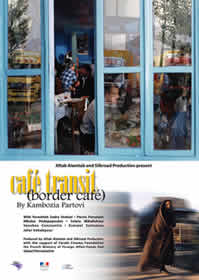 takes place in a small Iranian border town located at the dividing line between Europe and Asia and revolves around the struggles of the unwavering, widowed mother of two young children. Reyhan decides to reopen her deceased husband’s roadhouse café, though it is known that it is unthinkable for a woman to run such a business. Her immovable desire for independence causes intense conflicts with her late husband’s brother who runs a café himself and wants to force Reyhan to marry him . She is forced to endure numerous conflicts and obstacles in her struggle to maintain her business but also manages to help some people on the way.
takes place in a small Iranian border town located at the dividing line between Europe and Asia and revolves around the struggles of the unwavering, widowed mother of two young children. Reyhan decides to reopen her deceased husband’s roadhouse café, though it is known that it is unthinkable for a woman to run such a business. Her immovable desire for independence causes intense conflicts with her late husband’s brother who runs a café himself and wants to force Reyhan to marry him . She is forced to endure numerous conflicts and obstacles in her struggle to maintain her business but also manages to help some people on the way.
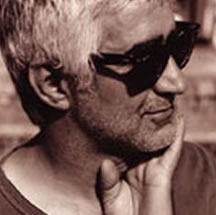 Director of Border Cafe, Kambozia Partovi was born in the province of Gilan, Iran and went to Tehran University to study dramatic arts. He has written a number of films such as Jafar Panahi’s Circle, and Atiq Rahimi’s Earth and Ashes. Partovi consistently displays a great sensitivity and care for his characters in his films, a skill he perfect during his career directing children’s films. Kambozia has also directed several feature films including Fish, Two Sisters, Naneh lala, and Border Café, which won the best screenplay and best actress awards at the Fajr International Film Festival in Iran
Director of Border Cafe, Kambozia Partovi was born in the province of Gilan, Iran and went to Tehran University to study dramatic arts. He has written a number of films such as Jafar Panahi’s Circle, and Atiq Rahimi’s Earth and Ashes. Partovi consistently displays a great sensitivity and care for his characters in his films, a skill he perfect during his career directing children’s films. Kambozia has also directed several feature films including Fish, Two Sisters, Naneh lala, and Border Café, which won the best screenplay and best actress awards at the Fajr International Film Festival in Iran
Cinema Without Borders: What did inspire you to make Café Transit?
Kambozia Partovi: First of all, I wanted to consider the situation of some Iranian women, in pretext of food and cooking, which is considered as a part of a community’s culture and exhibits its living style and its economical conditions.
In fact, I was inspired by Iranian women, who we couldn’t clearly define in the movie “Hamoon”, especially in a community 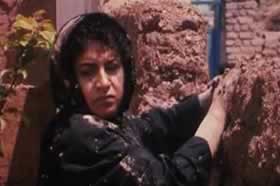 with ruling man chauvinistic traditions. But we should mention that this includes the condition of women in any traditional man chauvinist community. Women, who resist against the unjust and sometimes inhumane pressure of tradition, which is so common, in order to attain their independent characters.
with ruling man chauvinistic traditions. But we should mention that this includes the condition of women in any traditional man chauvinist community. Women, who resist against the unjust and sometimes inhumane pressure of tradition, which is so common, in order to attain their independent characters.
CWB: Your wife, Fereshtei Sadr Erfani, is playing the main character of the movie, did she had any input as a women in making of Café Transit?  Kambozia: If you mean I was influenced by her, by “her input in making this movie”, I should say relatively yes, because she is also one of our society’s women, and I’m being influenced by all the people.
Kambozia: If you mean I was influenced by her, by “her input in making this movie”, I should say relatively yes, because she is also one of our society’s women, and I’m being influenced by all the people.
CWB: Beside the reason that Fereshtei Sadr Erfani being a great actress, did you need her to play Reyhan because you knew her well as your life partner?
Kambozia: in contrast to what you might think, it wasn’t so that I had based Reyhan’s personality on Mrs. Fershteh Sadre – Orafai. I actually don’t do such thing as forging one of the characters in my screenplay, 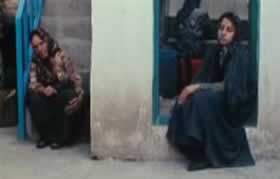 beforehand, considering capabilities or characteristics of a certain actor or actress, in any of my works. I don’t think it’s right. But I think that an actor or an actress, should be able to fit him or herself in the style and conditions of that character to be fine and believable. So, I was busy finding an actress for Reyhan’s part among those involved in cinema and theatre for a couple of months, but none of them could fit in the characteristics I wanted. Then one of my director
beforehand, considering capabilities or characteristics of a certain actor or actress, in any of my works. I don’t think it’s right. But I think that an actor or an actress, should be able to fit him or herself in the style and conditions of that character to be fine and believable. So, I was busy finding an actress for Reyhan’s part among those involved in cinema and theatre for a couple of months, but none of them could fit in the characteristics I wanted. Then one of my director 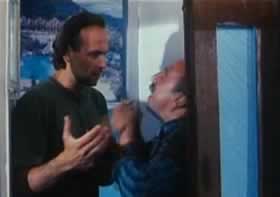 friends came to help me and advised me to think of Mrs. Orafai, too. When I told my producer and my assistant about it, they also believed that she is the most appropriate actress for Reyhan’s part. When I asked for her opinion, after reading the script, she also accepted it.
friends came to help me and advised me to think of Mrs. Orafai, too. When I told my producer and my assistant about it, they also believed that she is the most appropriate actress for Reyhan’s part. When I asked for her opinion, after reading the script, she also accepted it.
CWB: In your movie you cleverly show that a woman social and financial independence are connected and one can not be achieved without the existence of the other. Is this a true understanding of your movie?
Kambozia: You’re absolutely right. This is not possible in eastern traditional societies. Because in such societies it is accepted as a belief that a woman is a man’s possession, as he pays for her living costs. And that’s what causes her to lose her inner self and personal originality. As a result, her independence as a human being with less capabilities and comprehension than of a man, will be also lost. In such communities, a woman or anyone who’s known as “incapable”, must first of all become 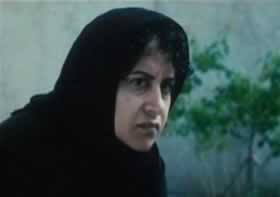 financially independent, in order to achieve her or his personal independence (or personal originality). That is, she should strengthen that part, which is considered as a weakness compared to a man (daily financial needs), then she can get to her independence as a being, which has been taken from her.
financially independent, in order to achieve her or his personal independence (or personal originality). That is, she should strengthen that part, which is considered as a weakness compared to a man (daily financial needs), then she can get to her independence as a being, which has been taken from her.
CWB: Is Nasser character there in the movie to help with creation of excitement and tension in Café Transit or he means more to the movie’s plot?
Kambozia: No, I should say that unfortunately in such societies when someone, or some power, starts to stand against one’s will, thought, or belief, it would create tension.
A tension and an excitement within. I only wanted to picture the whole existing thing, as it actually is. Unfortunately, Nasser is also a part of the existing truth. I only interfered to make that character milder, by bringing his brother, I divided the personality into two: one tries to confront Reyhan’s will to achieve 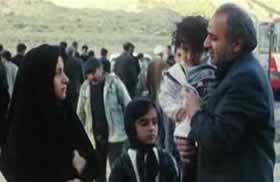 independence, logically and humanely, respecting all the rules of his traditional society; and the other one, his brother, “Karim”, discloses Nasser’s hidden anger, that means Karim is Nasser’s restrained anger and he wants to resolve any crisis through violence and pressure. And this isn’t any different from what I see in my country’s governing system. That’s why it has become a part of unconscious minds of me and us all.
independence, logically and humanely, respecting all the rules of his traditional society; and the other one, his brother, “Karim”, discloses Nasser’s hidden anger, that means Karim is Nasser’s restrained anger and he wants to resolve any crisis through violence and pressure. And this isn’t any different from what I see in my country’s governing system. That’s why it has become a part of unconscious minds of me and us all.
A political wing who tries to respond to people’s demand for their indisputable rights, by logical talking and discussion, and the other wing that wants to respond to the same people by force and violence.
CWB: Please tell us about the challenges you faced when making the Café Transit .
Kambozia: Well this movie just like all the other ones had its problems too. During production, finding and choosing native cast who weren’t actors, and also finding foreign actors and actresses. And then it was difficult to communicate with those Bulgarian, Hungarian, Russian truck drivers and the local non-actor Turks etc. But anyway, we had a good progress in production ’till the prime copy of the movie was ready. But the main challenge was when the movie was sent to the censorships administration, well the censorships administration has its own taste and rules too. These taste and rules, I still haven’t understood them in my 23 years of professional career, just as same as they don’t understand what I say. So, not understanding each other’s words is what led to the censorship of some parts of the movie.
CWB: How did you come up with the visual style of the movie?
Kambozia: For me writing the script is usually the longest period of the film making procedure. Apart from writing the story and dealing with the characters, I 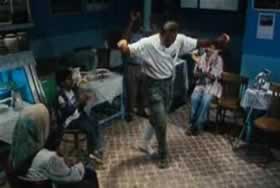 have to get to the image. That is, I should approach that picture which reveals the story and expresses my mind. When the image is written, it’s clear for me to recreate and express it during the shooting. This is a general rule during the screenplay writing. But of course, every screenplay and story requires its own revealing method and language, which should be found at first. For instance, in the script of the movie “Dust and Ashes” directed by Atiq Rahimi – a production of France – the situation of the main role (the old Afghan man) and his confusion and helplessness in a road in the middle of a desert is more important than the story and time or anything else. So, we had to achieve that picture of the old man and the desert and the situation, that the script would be written. But in “the circle” directed by Jafar Panahi, it was different. Here was the image-writing of desperation of some forbidden women in no place and no time. Then the image-writing of those women’s situation was more important than anything else. But in “Café Transit ” relations between people and the situations they are in is more important than anything else. Therefore, although the movie’s title is limited to a place, the movie itself shouldn’t be confined to a single place, and has to deal with the people of that place.
have to get to the image. That is, I should approach that picture which reveals the story and expresses my mind. When the image is written, it’s clear for me to recreate and express it during the shooting. This is a general rule during the screenplay writing. But of course, every screenplay and story requires its own revealing method and language, which should be found at first. For instance, in the script of the movie “Dust and Ashes” directed by Atiq Rahimi – a production of France – the situation of the main role (the old Afghan man) and his confusion and helplessness in a road in the middle of a desert is more important than the story and time or anything else. So, we had to achieve that picture of the old man and the desert and the situation, that the script would be written. But in “the circle” directed by Jafar Panahi, it was different. Here was the image-writing of desperation of some forbidden women in no place and no time. Then the image-writing of those women’s situation was more important than anything else. But in “Café Transit ” relations between people and the situations they are in is more important than anything else. Therefore, although the movie’s title is limited to a place, the movie itself shouldn’t be confined to a single place, and has to deal with the people of that place.
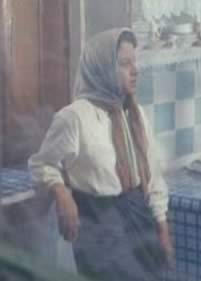 CWB: What are your plans for international distribution of “Transit Cafe”?
CWB: What are your plans for international distribution of “Transit Cafe”?
Kambozia: I don’t know about the international distribution, I just know that the movie’s screening in some European countries had a good feedback from the audience. The movie’s distributor is very weak.
CWB: Who are the film makers that you admire?
Kambozia: There are so many I like. Each of them has influenced me in a way: Wim Wenders, Brian De Palma, Jim Jarmusch, Kusturica, Chekhov, Honore de Balzac, Skakespeare, Cooper, Monet, Van Gaugh, Wagner, Satya Jit Ray, Camus, Kafka, Sadeq Hedayat, Picasso, Beethoven, Sean Penn, Sophokles, Youssef Chahine, Jean-Pierre Melville, Saura, Kurosawa, Hafez, Traffau, Godard, Mowlana, Hal Hartley, Shamlou, Salinger, Graham Greene, Russel, Jesus, Mohammad, Brahman, Zoroaster, Goethe, Borges, Nietzsche, Goya, Theodorakis, Kazantzakis, Guy de Maupassant, Gholamhossein Saedi, Naguib Mahfuz, John Ford, Yilmaz Guney etc.
All those who have given me feelings and thoughts.
CWB: Please tell us about your future projects.
Kambozia: My last work was writing a screenplay based on Dostoevski’s “crime and punishment” for a French producer. And right now I’m writing a screenplay based on the book “searching for Hassan” by Terence Ward, for Merchant & Ivory Company. And after that I intend to work on the book “Zorba the Greek” for a movie.

